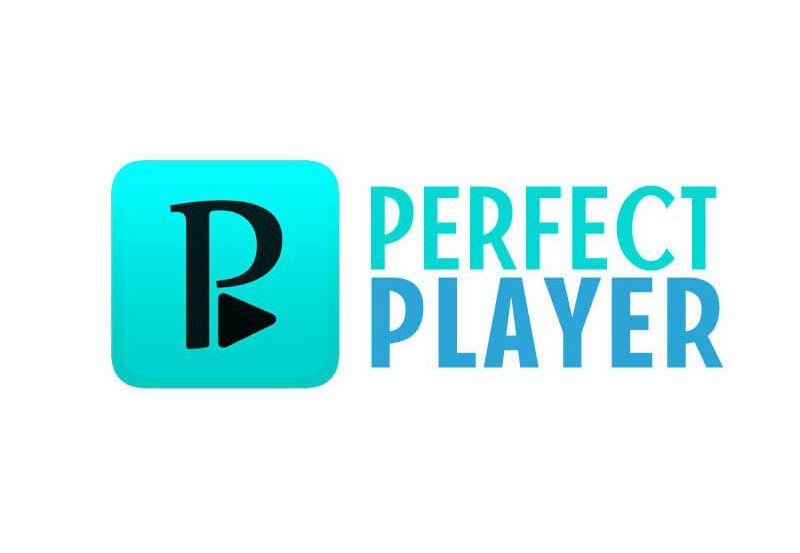In today’s digital age, entertainment has burst forth through screens, capturing our attention with the promise of virtually endless content. Among the myriad of choices for IPTV solutions, Kodi stands out. But why has this open-source media player garnered such a dedicated following, especially on Linux systems? If you’ve ever found yourself navigating the seas of IPTV subscriptions, or if you’re an IPTV beginner, pondering the best route to enhance your viewing pleasure, this article aims to be your lighthouse.
The Essence of IPTV and Kodi
To understand the allure of Kodi for IPTV, it’s important to first grasp what IPTV subscriptions genuinely offer. Unlike traditional broadcasting methods like satellite or cable, IPTV (Internet Protocol Television) delivers channels and shows via the internet. It unshackles users from schedules, providing on-demand access to their favorite media. But where does Kodi fit into this framework?
Understanding IPTV and Its Appeal
IPTV’s primary charm lies in its flexibility. Users can select content from a vast library, streaming it at their discretion. This suits the modern viewer’s desire for personalized entertainment, free from the constraints of time and typical broadcasting boundaries. For those new to IPTV, starting can seem daunting, but it is a liberating experience once the basics are grasped.
Streaming Advice:
Enhance your entertainment with Buy IPTV online and enjoy premium global content from anywhere.
Consider IPTV subscriptions as your personalized gateway to content diversity. With just an internet connection, a world of entertainment becomes accessible without the need for bulky equipment or restrictive service plans. But the key to truly optimizing this experience is choosing the right player, and that’s where Kodi makes its entrance.
The Role of Kodi in the IPTV Landscape
Kodi, an open-source media player first launched as Xbox Media Player, has transformed into a versatile tool for content consumption. Its reputation rests on its adaptability and a robust community supporting its evolution. For users exploring IPTV on Linux, Kodi represents not just a media hub but a customizable platform that caters to both basic and advanced viewing needs.
Unique to Kodi is its commitment to open-source principles, allowing users to modify and extend functionalities to an incredible extent. This adaptability makes it a favorite among tech-savvy viewers who want control over their content and how it’s displayed. Whether you’re new to IPTV or a seasoned viewer, Kodi’s flexibility is unmatched by other options.
Why Kodi Reigns Supreme Among Linux-Based IPTV Players
Although various IPTV players claim to fulfill diverse requirements, Kodi’s unique features make it a frontrunner on Linux. It caters to technophiles and causal viewers alike, creating a unique niche in the market. Let’s delve into why it’s the go-to choice for many.
Customization: Shape Kodi to Your Needs
Kodi’s strength lies in its capacity for customization, offering users the freedom to tailor their media experience. This is particularly appealing to Linux users, who often value independence and self-determination in their software solutions. With a plethora of skins, add-ons, and tools, Kodi lets you sculpt your media interface to perfection.
- Add-ons: Enhance functionality with community-developed plugins.
- Skins: Apply different themes to give Kodi a new look.
- Remote control interoperability: Seamlessly integrate Kodi with various devices for operation.
Cross-Platform Versatility
Kodi’s ability to operate across platforms is another boon. While it’s primarily recognized for use on Linux, it’s highly versatile, running on a variety of systems. This cross-platform compatibility ensures that you can access your Kodi setup from multiple devices, without losing personalization or content preference. This is particularly beneficial for users who fluctuate between devices but want a consistent IPTV experience.
Security and Privacy: More Than Just a Bonus
With growing concerns around internet security, privacy is no longer an optional extra; it’s essential. Kodi allows users to install VPNs to protect their streaming activity. This is an attractive feature for those mindful of online security threats while enjoying IPTV’s vast content offerings.
Active Development and Community Support
Kodi thrives due, in part, to its vibrant community. Continuous input from dedicated developers ensures consistent improvements in its features, security, and user-interface design. Active forums, user guidelines, and extensive documentation add to its appeal, ensuring that users are never left without assistance when needed.
Features That Set Kodi Apart
The features that come baked into Kodi are a testament to its foresight as a leading media player. These elements are not merely extras; they are essentials that elevate IPTV viewing to another level, promising an enriched content experience.
Support for Numerous Formats
One significant advantage Kodi holds over other players is its support for an immense range of audio and video formats. This ensures that users are not bound by compatibility issues that may plague other platforms. Whether it’s high-definition content, live TV, or radio, Kodi can manage it seamlessly.
Streaming enthusiasts benefit from this functionality, knowing they won’t have to rely on third-party conversions or additional software to enjoy their favorite shows or music tracks—all of which can be directly managed within Kodi.
Ease of Use Paired with Powerful Tools
Initially daunting for IPTV beginners, Kodi quickly becomes an intuitive tool with its thoughtful interface design. Users can easily navigate through media libraries or leverage its powerful search functionalities to pinpoint specific content amidst extensive catalogs. The learning curve is softened with each use, and represented tools like playlists and tags only enhance the experience.
Local and Cloud Storage Access
Users benefit from the ability to integrate both local and cloud-stored media files, an essential feature for those curating personal music and video libraries. Accessing media stored on NAS drives or cloud services blends seamlessly with streaming content, offering versatility seldom seen in contemporary IPTV solutions.
Streamlined Library Management
Kodi transforms media management into a streamlined process with its ability to organize collections through metadata scraping and cataloging. Information like cover art, synopses, cast lists, and more enhance browsing and create an immersive environment akin to professional streaming services—all managed within your own media ecosystem.
Diving Deeper: User Experiences and Anecdotes
As we explore why Kodi shines as a top choice for IPTV on Linux systems, hearing directly from users offers insights that expose its real-world benefits. Below are shared experiences showcasing why users pick Kodi time and time again over alternative players.
Tech Enthusiast Perspective
Chris, a software developer, fell in love with Kodi’s open-source nature, remarking how “Kodi’s open framework gives me the flexibility to experiment and innovate as much as I want.” For those adept with code and keen on creating personalized setups, full access to Kodi’s code base provides unlimited possibilities.
Many tech enthusiasts express appreciation for how they can manage everything centrally, from online media channels to offline collections, heightening the practical value of Kodi’s contributions to entertainment solutions.
Casual Viewer Insights
On the other hand, Emily, an everyday viewer, appreciates Kodi’s accessible interface, noting how “I found customizing my experience as easy as setting up my smartphone.” The ease of accessibility paired with the powerful range of customizable settings ensures Kodi’s appeal ranges beyond the tech aficionados, capturing the hearts of everyday individuals looking for seamless media consumption.
Family and Multi-user Scenarios
Another point of interest is Kodi’s capacity to hold up in family settings. With the ability to manage multiple user profiles, every family member can have their bespoke streaming experience. This supports diverse viewing preferences without interfering with each other’s setup, vital for maintaining harmony in multi-user situations.
Addressing Common Concerns
While Kodi shines brightly, users often raise a few considerations about it compared to other players. From legal queries to customization complexities, addressing these ensures informed decisions for prospective users.
Legal Considerations
One frequent query is about legality surrounding Kodi’s add-ons. Importantly, Kodi itself is 100% legal, given its open-source status. However, grey areas emerge depending on third-party add-ons used for accessing pirated content. Legal-looking eye points out: “It’s crucial for users to be aware and cautious about the plugins they choose to avoid legal issues.”
Setup Challenges
Nonetheless, new users might find the initial setup intimidating, especially if unfamiliar with Linux systems. The learning curve, although present, becomes less daunting with community support. Moreover, comprehensive online guides walk newcomers through step-by-step processes to smooth out teething problems. For beginners willing to invest a little time, Kodi soon becomes second nature.
Comparisons in User Interface
Lastly, comparisons on UI with other options sometimes raise concerns about complexity. Yet, for many, the ability to tailor both interface and functionality outweighs any initial hurdles, ultimately contributing to a media experience uniquely catered to their desires.
Closing Thoughts
While the universe of IPTV players swirls with possibilities, Kodi remains a beloved icon among Linux users. It stands strong, not just due to its extensive features but because of its ability to evolve, adapt, and meet the constantly shifting needs of its users. Every aspect of Kodi, from its strong support community to its array of customization choices, speaks to the future of open-source media players.
For those considering their options, weighing the robust allure of Kodi against competitors paints a clear picture of its benefits. Its reputation as a powerful media tool is continually affirmed by a diverse user base eager to explore the depth of their media experiences. Whether you’re a tech enthusiast itching to modify and personalize or a casual viewer seeking user-friendly interaction, Kodi has something for everyone, ensuring it remains at the top of the list among Linux IPTV players.
Frequently Asked Questions

What makes Kodi special compared to other IPTV players?
Kodi stands out due to its high degree of customization, support for a wide range of media formats, and its strong community backing, which keeps it updated and secure.
Is Kodi legal to use?
Yes, Kodi is entirely legal. However, care must be taken with third-party add-ons, as some may offer access to pirated content, which can breach legal guidelines.
Can a beginner easily use Kodi?
While there can be a learning curve for new users, many find that the user interface is intuitive and enhanced by numerous online guides, making it accessible for IPTV beginners.
Is Kodi compatible with devices other than Linux?
Absolutely. Kodi is cross-platform and can run on various operating systems besides Linux, offering consistent performance across devices.
Does Kodi support streaming with subtitles?
Yes, Kodi supports subtitles and even provides options to download them. Users can manage subtitle settings easily through the player’s comprehensive menu options.
Step-by-Step Guide: Fixing Missing Channels in XMLTV Guides for IPTV





